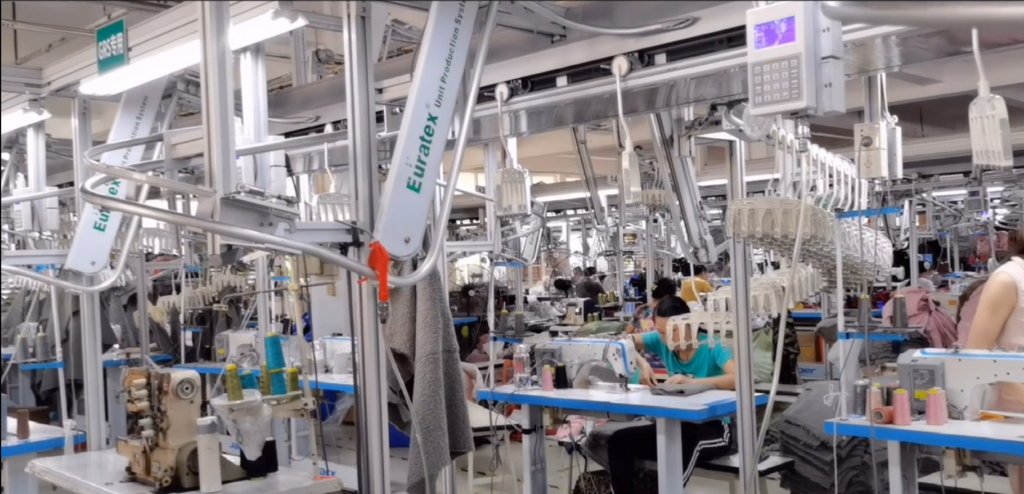Introduction
Finding a reliable wholesale supplier for baby carriers can be challenging given the abundance of options available online. A dependable supplier is essential to ensure the quality and safety of baby carriers, which are crucial for the well-being of infants. This guide outlines a comprehensive approach to locating a trustworthy wholesale supplier, focusing on factors like supplier credibility, product quality, compliance with safety standards, and customer service.
1. Define Your Needs
Before beginning your search, it’s important to clarify your specific requirements. Determine the types of baby carriers you want to offer (e.g., wraps, slings, structured carriers), the quantity needed, and your budget. Having a clear understanding of your needs will help you narrow down potential suppliers.
2. Research Potential Suppliers
a. Online Directories
Utilize online directories such as Alibaba, Global Sources, and Made-in-China. These platforms list numerous suppliers and allow you to filter results based on your criteria.
b. Trade Shows
Participate in trade shows like the ABC Kids Expo or the Hong Kong Baby Products Fair. These events provide an opportunity to interact directly with various suppliers, inspect products firsthand, and establish personal connections.
c. Referrals and Networking
Connect with other business owners or join industry-specific forums and groups for valuable referrals. Recommendations from trusted sources can often be more reliable than online searches.
3. Evaluate Supplier Credibility
a. Company Background
Investigate the supplier’s history, reputation, and client testimonials. A supplier with a solid track record and positive reviews is generally more trustworthy.
b. Certifications and Compliance
Confirm that the supplier adheres to relevant safety standards and holds necessary certifications. For baby carriers, look for compliance with ASTM F2236 (Standard Consumer Safety Specification for Soft Infant Carriers) and CPSIA (Consumer Product Safety Improvement Act).
c. Factory Visits
If feasible, visit the supplier’s factory to assess their manufacturing processes, quality control measures, and working conditions. This firsthand experience can provide deeper insights into the supplier’s reliability.
4. Assess Product Quality
a. Material and Construction
Evaluate the materials and construction of the baby carriers, as these factors are critical for safety and comfort. Request samples to assess the quality of materials, stitching, and overall design.
b. Safety Features
Examine essential safety features such as secure buckles, adjustable straps, and adequate support to ensure the baby’s safety and comfort.
c. Product Testing
Inquire about the supplier’s product testing protocols. Trustworthy suppliers should have rigorous testing procedures to ensure their products meet safety standards.
5. Review Pricing and Payment Terms
a. Competitive Pricing
Compare prices from different suppliers while considering product quality. Be cautious of extremely low prices, as they may indicate compromised quality.
b. Payment Terms
Discuss payment terms with potential suppliers. Reliable suppliers often provide flexible payment options, such as partial payments upfront and the remainder upon delivery.
c. Minimum Order Quantity (MOQ)
Understand the supplier’s MOQ requirements to ensure they align with your business needs and budget.
6. Evaluate Customer Service
a. Communication
Effective communication is vital for a successful partnership. Assess the supplier’s responsiveness, clarity, and willingness to address your concerns.
b. After-Sales Support
Reliable suppliers offer strong after-sales support, including handling defective products, returns, and replacements. Clear policies in these areas are crucial.
c. References and Reviews
Request references from the supplier and reach out to previous clients. Online reviews and ratings can also provide insights into the supplier’s customer service quality.
7. Legal and Contractual Considerations
a. Contracts and Agreements
Draft a detailed contract outlining the terms of the agreement, including product specifications, delivery timelines, payment terms, and dispute resolution mechanisms.
b. Intellectual Property Protection
Ensure the supplier respects intellectual property rights, particularly if you have proprietary designs or branding for your baby carriers.
c. Legal Compliance
Verify that the supplier complies with all relevant local and international laws and regulations.
Conclusion
Finding a trusted wholesale supplier for baby carriers requires diligent research and careful evaluation. By clarifying your needs, assessing supplier credibility, evaluating product quality, reviewing pricing, and ensuring strong customer service, you can establish a reliable partnership with a supplier that aligns with your business objectives. Prioritizing the safety and comfort of the infants who will use the carriers is essential—never compromise on quality or compliance with safety standards.
FAQs
1. What certifications should a baby carrier supplier have?
A reliable supplier should have certifications such as ASTM F2236 and comply with the CPSIA.
2. How can I verify the credibility of a supplier?
Check the supplier’s business history, client testimonials, certifications, and, if possible, visit their factory.
3. Why is it important to request product samples?
Samples allow you to assess the quality of the baby carriers’ materials, construction, and safety features.
4. What should be included in the contract with the supplier?
The contract should outline product specifications, delivery timelines, payment terms, and dispute-resolution mechanisms.
5. How can I ensure the supplier respects intellectual property rights?
Discuss intellectual property protection with the supplier and include relevant clauses in the contract to safeguard your designs and branding.

